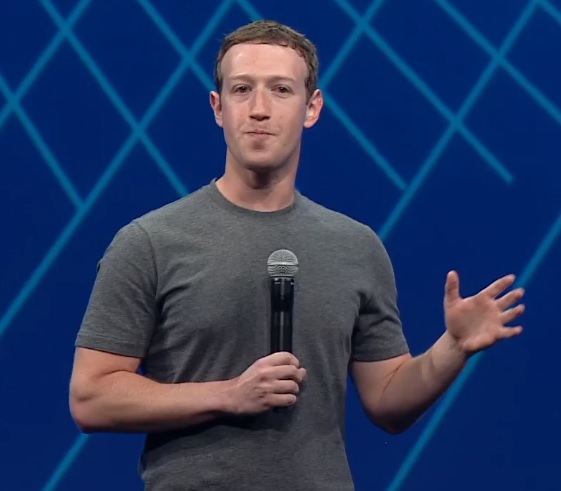Mark Zuckerberg on how Facebook's AI will be "better than humans"

Mark Zuckerberg has talked about how artificial intelligence and virtual reality technologies being developed at Facebook will change the world.
In a question and answer session on Facebook, the Facebook founder and CEO wrote about why the social media company is developing AI tools focused on areas such as facial and voice recognition.
"We're working on AI because we think more intelligent services will be much more useful for you to use," he said.
AI could help notify you if someone takes a photo with you in it or make it easier for people to find images and posts related to their interests, he said.
"Similarly, if we could build computers that could understand what's in an image and could tell a blind person who otherwise couldn't see that image, that would be pretty amazing as well. This is all within our reach and I hope we can deliver it in the next 10 years."
Facebook has various projects developing AI to improve the services the social network offers. It runs AI labs looking at how to use deep learning to do everything from voice translation to image recognition in New York, Silicon Valley, and Paris, and earlier this year acquired voice-recognition AI startup Wit.ai.
"In order to do this really well, our goal is to build AI systems that are better than humans at our primary senses: vision, listening, etc.
"For vision, we're building systems that can recognize everything that's in an image or a video. This includes people, objects, scenes, etc. These systems need to understand the context of the images and videos as well as whatever is in them.
"For listening and language, we're focusing on translating speech to text, text between any languages, and also being able to answer any natural language question you ask."
The ability of this software to recognise people with increasing accuracy is likely to worry those such as US senator Al Franken, who has already voiced privacy concerns over technologies such as Facebook's DeepFace facial recognition platform.
Facebook's other big future technology bet is virtual reality, with its acquisition of VR headset maker Oculus for $2bn last year.
"We're working on VR because I think it's the next major computing and communication platform after phones," said Zuckerberg.
"In the future we'll probably still carry phones in our pockets, but I think we'll also have glasses on our faces that can help us out throughout the day and give us the ability to share our experiences with those we love in completely immersive and new ways that aren't possible today."
Those new ways, according to an earlier Q&A with Zuckerberg, include virtually meeting up with someone who is located far away, building impossible virtual structures and recreating real-world scenes as explorable 3D spaces.
"It will be pretty wild," he said at the time.
Read more